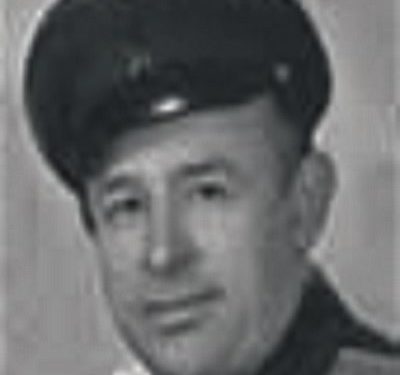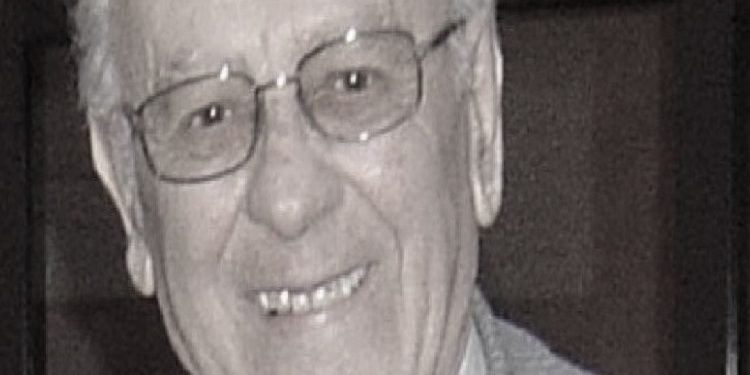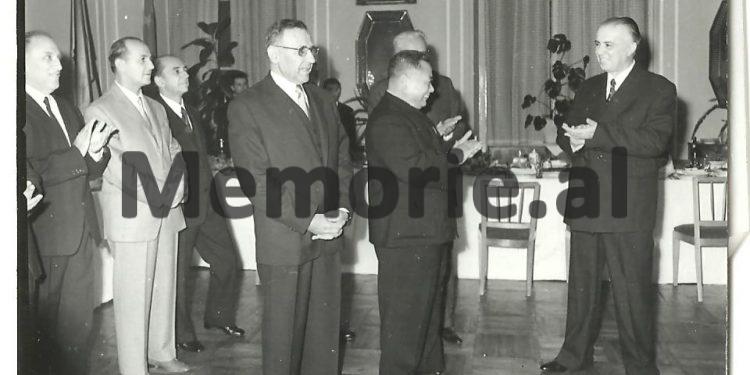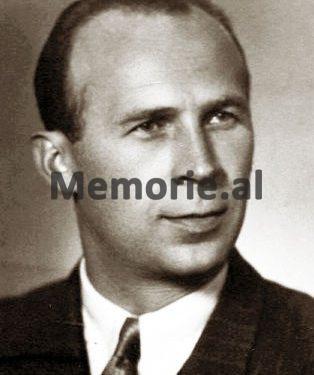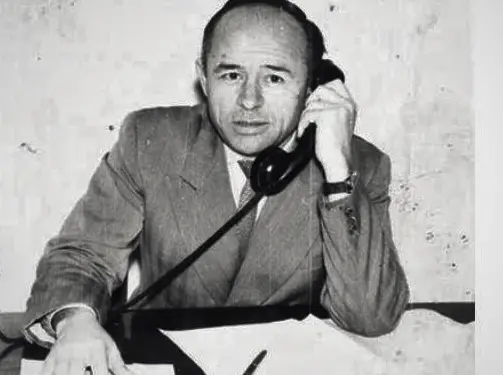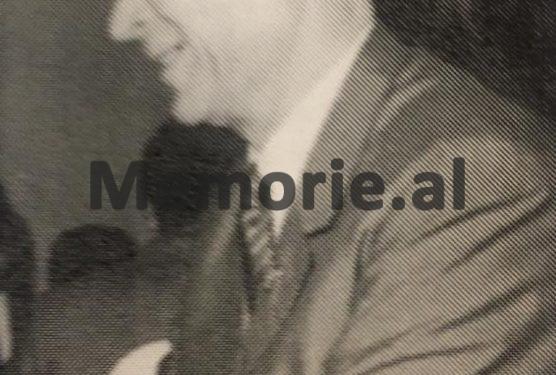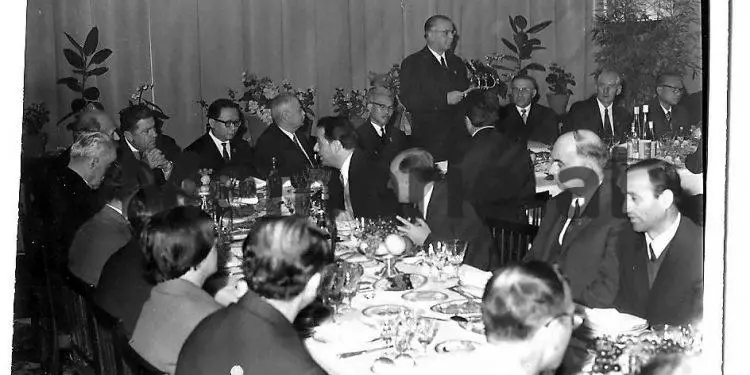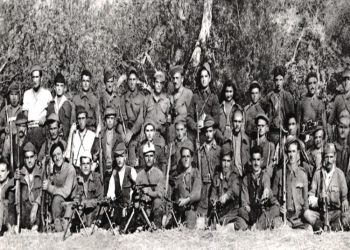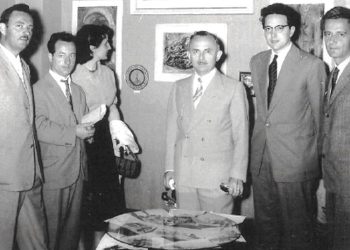From Duro Mustafai
Second part
Memorie.al / We met Jonuz Mersin in 2004 when he was 82 years old, while he tells much less. In republican hats and smartly dressed, he resembled the former model official. Spare in words, but with a good memory, Mersini narrated the interesting stories of his life. Former commissioner of the “Sali Murati” partisan detachment of Vranishti, Vlora district, he participated in many important actions. Then with the creation of the 5th Assault Brigade, Jonuz Mersini, one of its cadres, was involved in all the battles that this unit undertook both within the territory of Albania and in Kosovo and Yugoslavia at that time, until Bosnia and Herzegovina. Even a bullet did not stop his deeds even though he took it twice in battles with the invaders. A long career in the structures of the Albanian secret service, (Director of the Directorate of Political Intelligence, camouflaged at the Ministry of Foreign Affairs as a diplomat, operating outside Albania), first in Tropoja, then in New York and other countries others. The man who served for more than 40 years in important structures of the State Security and diplomacy, as a camouflaged detective, tells us exclusively about the most incredible events, which he brings as if they happened today.
Continues from last issue
Mr. Mersini, as a detective, have you ever felt yourself in danger?
The life of the discoverer abroad is always in danger, because all the actions are done under the tracking of the State Security; act and you have no protection, except the diplomatic passport. When an overseas detective contacts an agent, he is under the threat of the provocateur for the entire time, until the agent provides the necessary evidence.
It is especially about agents who work not on a voluntary and patriotic basis, but on the basis of monetary interest, that is, for money. I have felt myself endangered many times. Any contact with an agent is always risky. But I felt myself more closely in 1966, when I went on a mission to Gdansk, Poland, to illegally take, at any cost, a certain Kazimierzh Mijal, who called himself the first secretary of the Marxist-Leninist Communist Party of Poland.
His illegal extraction from Poland would be done by putting him in a secret place specially designed for him on the ship “Skanderbeu”, which was a ship of our Merchant Fleet and often went to the Port of Gdansk, for hauling goods that we were importing from Poland, based on the bilateral trade agreement between the two countries. I was accompanied by Kleanth Andoni (from Vunoi), with whom we worked together. We also had the necessary weapons with us, machine guns and grenades.
In the Central Committee of the PPS, we were instructed that if we were dictated by the Poles when we took him on the ship or when they were in the Baltic waters, we had to fight with the Poles and not hand him over. We stayed in Poland for 15 days. It was winter. We did some tests on how we could put him on the ship in the group of sailors, giving the guard a bottle of “Skënderbeu” cognac each time. In the end, they informed us from Tirana that he had arrived in Albania with a forged passport, prepared by our embassy there.
You have been the ambassador of Albania in several distant countries. How would these connections serve our country?
For three years, from 1979 to 1982, I was ambassador of Albania in China, Nepal, Burma, Bangladesh, Thailand, Ceylon (Srilanka) and Pakistan, with a residence in Beijing. Excluding China, with which we had regular relations, we had formally established diplomatic relations with other countries. Our goal was to make the politics of our country known in those countries.
By and large, they were Muslim countries and, however slightly, they agreed with our policy, as far as they knew it. In some of these countries, interest was also shown in trade exchanges, especially for cotton and agricultural products. In some of these countries there were friendship associations with Albania. Where these associations existed and where they were active, there was some knowledge of our country, though incomplete. Where there were no associations, the people knew nothing about our country, except for the fact that it was a “Muslim brother country in Europe”.
What are your most memorable memories in life as a discovery diplomat?
In my life as a diplomat, I have often encountered surprises and surprises, sometimes pleasant and sometimes bitter. When I was in Argentina, I suddenly fell seriously ill. The Albanians I met became close to me like brothers. I was admitted to a private clinic where the surgeon was an Albanian from Calabria. When I heard him speak Albanian, I thought I was lucky to have fallen into his hands. He was a good specialist and his hands were golden. He operated on me urgently for appendicitis.
Even though he had immigrated to Argentina years ago, he spoke his mother’s language well, and even taught Albanian to children who were born in Argentina. Such a fact, when you are far from the motherland, excites you and makes you believe that Albanians, especially when they are far from Albania, do a lot for each other. They must have made my task easier. Yes, there I met another Albanian, more than that, from my hometown, Vlora. His name was Sadik Bleta.
Who was he and what did he represent in that meeting with you?
Many years ago, together with his wife, Sarbatena, he moved from Vermiku i Vlora and ended up in Argentina. They, husband and wife, were among the most active members of the Albanian colony “Skënderbej”. Sarbateja was a special woman. In her home she wanted to speak only in the Albanian language.
When one of her children, for convenience, used a word in the Spanish language, she grabbed the mashan and waving it in the air, like a stick, addressed the children: “Speak Albanian, get off the pig, get off!” Do you speak Albanian, do you see the mashan? I broke their legs”! It is interesting how he strongly emphasized the words “mashan” and “kércinj”, in order to clearly pronounce the words of the Albanian language.
You have been present in the Royal Courts of various countries in Southeast Asia, but you have also seen places that were very different from Albania, both in terms of nature and people. Do you keep special impressions and memories?
When I was ambassador to the People’s Republic of China, as I have said, the Albanian government accredited me to several other countries in Southeast Asia. I often went to these places, initially to present my credentials, but also for different jobs, at different times. Nepal, Pakistan, Burma, Ceylon, Bangladesh, etc., have been new work experiences that have left indelible impressions on me.
You can make friends everywhere. I am quoting one case: Nepal is a land of amazing greenery and beauty, but the people were poor. However, it occurred to them that there is a country like Albania and, for this reason; they had created the Albanian-Nepalese Friendship Association. The country of rare beauty, lying at the foot of the Himalayas, was invincible, but the inhabitants were very loving, humane and kind. They were mainly engaged in handicrafts and the processing of copper and bronze.
They traded decorations and gifts with these works. One such gift, a beautiful metal plate, I still keep today. It was given to me by the Albanian-Nepalese Friendship Association so that I could remember it. The people were curious to hear us, but I became more curious when I saw their behavior towards the cow. They valued and appreciated him as a divine being, they did not even slaughter him, and they did not grind him. One day, while walking on the streets of Kathmandu, I noticed that traffic was blocked.
The Nepalese who accompanied me told me that somewhere, in the middle of the main road, he had stopped to rest a cow. I asked him why they didn’t drive him off the road. “Ah, no, no! The cow is sacred. No one can disturb her peace, not even the police. She will get up and move when she feels like it; even if it takes a few hours,” said the local companion. The Nepalese surprised me with his smile and the words he said to me, but as we say “fairy villages”. The surprises were not over.
At the end of the credentialing ceremony, the King of Nepal, Birendra, told me that I should take the handkerchief out of my pocket. Although surprised and shy, I did as he told me. So, I took the handkerchief out of my pocket. “Open it in half and hold it in the palm of your hand”, ordered the King, his face bright. On my handkerchief, the King dropped a few drops of a special liquid from a bottle. The handkerchief was thus perfumed, emitting a pleasant fragrance. After that, I had to put it in my pocket. Only after this action, the ceremony in the royal palace was called completed.
However, I was particularly impressed by Bangladesh with Dhaka, the “capital of laraskas”. Larasks, in large flocks, flew close by and their chirping did not let you sleep peacefully. Then, those rehearsals with a platoon of guards and a brass band, before appearing before the King for the credential ceremony, were a great strain and inconvenience.
Everything prepared according to a script with the place where I should stand as ambassador, in the middle of the guard of honor of the Guard, accompanied by two officers and the Chief of Protocol. Thus, among the sounds of the band, we would cross the road leading to the Royal Palace several times, until it was appreciated that the preliminary test was successful. At that time, these countries were considered as third world countries and much was said about them and their leaders.
Have you held political talks of this nature with the leaders of these countries?
I am telling you an incident. When I was in Ceylon, unlike other countries, I was accompanied to the Presidential Palace by the Foreign Minister. He was also present in the conversation. After the greeting words, surprisingly, the President himself asked me a question that I did not expect: “What do you Albanians think, will the Yugoslav Federation remain standing after the death of Tito?”. Our official opinion was known. It was announced, not only through diplomatic channels, but also through propaganda that was carried out in the countries of the Third World.
So the question of the President of that country seemed to me to be simply a request from him. So I began to speak on the basis of our official orientations, briefly stating how the Yugoslav Federation had been created, implying that it was on the way to dissolution. But, I noticed that the President seemed attentive; the Foreign Minister less so, perhaps because he was well informed about our position.
“You say that the Yugoslav Federation will disintegrate?” asked the President of Ceylon again. I told him that this federation, after the death of Tito, did not last long and that it could not exist, and I started to explain the reasons why I thought this way. I told him that, in the first place, in this federation, there were peoples who not only had not historically been friends with each other, but on the contrary, these peoples had been sworn enemies and this enmity was visible.
I told him that this had happened between Serbs and Croats, Serbs and Albanians, Serbs and Bosniaks and others. The President, although he did not like my prediction, still did not object. Then I learned that the President of Sri Lanka had been one of the initiators of the creation of the term “Third World”, and had done so together with Tito, Nehru, Sukarno and Nasser. So he had no way of accepting the destruction of the Yugoslav empire, even though he sensed its end, an end that actually happened a few years later.
What is your opinion on the role of the diplomat nowadays?
I want to emphasize that the diplomat’s duty is to raise the name, dignity and, in general, the image of his country. Today, for the sake of truth, the diplomat is not the one who is required to be in the new conditions that were created in the framework of democracy within the European family.
The diplomat must work for the development of the comprehensive relations of his country with the country where he is accredited as such, as well as to detect in time deliberate hostile actions against the sovereignty of his country and, especially, of the regions that have traditionally had and they may have territorial or political claims against our country.
It seems to me that more should be done in this direction and diplomacy should be more active in protecting national interests and especially the rights of Albanian immigrant citizens, who I say with conviction that in many cases their rights are denied in the states where they have emigrated, especially to neighboring countries. Memorie.al




